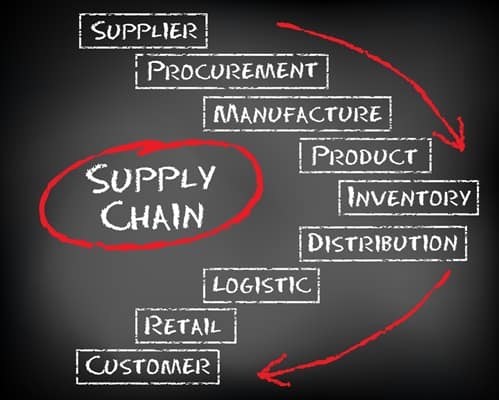Small business ERP solution

Enterprise resource planning software has become a fixture in most large industries. Companies use ERP tools to manage the data and schedules associated with manufacturing and distributing products to a global market.
Smaller businesses have been hesitant to adopt or update ERP systems. An Aberdeen Group study found 18 percent of companies with yearly revenue less than $50 million had not implemented ERP solutions. The respondents who were not utilizing the system said they were getting by using spreadsheets and accounting tools.
Of the companies that had adopted ERP systems like Microsoft Dynamics NAV, most were impressed with improved company activities including; reduce costs, data visibility, streamlined communications and growth facilitation.
Hesitancy to adopt new tools
Businesses just starting out have to be careful with their resources. If a company is met with initial success, they are not quick to search for ways to change their operations.
Demand Media stated company-wide ERP adoption requires a major investment of time, effort and capital. Hardware and software tools have to be replaced, employees have to be retrained and managers have to change their business models.
Many businesses suggested the investment may not be worth the risk, due to their limited demands. A smaller enterprise does not have the customer base or massive inventory of larger corporations. While entrepreneurs may recognize the inherent value of an integrated Small business ERP solution, they may believe they have not reached the point where it is necessary.
The ERP difference
Microsoft Dynamics NAV can assist the operations of any business, regardless of size. The Aberdeen study found companies both small and large can see a return on their ERP investment after proper implementation.
The limited funds and resources available to smaller organizations are exactly why they need to incorporate tools that prevent loss and promote growth. Full data visibility safeguards against mistakes that cost a company materials or money. Streamlined communication and information capturing tools cut down on redundancies, saving the organization time and manpower. A flexible system is able to grow with an expanding consumer market and product demand.
A company limiting its operations to spreadsheets and basic financial programs is denying itself data that works for the business.
Functions for small businesses
In recent years, ERP software has improved and become easier to scale. New tools are being introduced that specifically deal with companies that are implementing with limited resources.
Microsoft Dynamics NAV spreading to the cloud means it can be accessed from any device with an internet connection. CIO magazine suggested cloud-deployed software options are the best choice for companies that cannot afford to Web host or store data on-site. Mobile features allow the system to be used on personal devices, instead of opting for new terminals or hardware.
The new version of Microsoft Dynamics NAV features tools that are simple to utilize. MSDynamicsWorld.com recommends small businesses use the software for sales, receivables, warehouse and inventory management. Sales tools such as campaign pricing and invoice discounting make it easier for companies to host promotions and create loyalty programs for returning customers. The systems set up bins that can be used to design a warehouse layout, and product traceability functions allow managers to keep an accurate inventory count with a limited staff.
Implementation
A small business deciding to update or install a small business ERP solution should weigh the cost against the benefits. It is crucial for a company to be aware of exactly how the software should perform before they begin the implementation process.
Managers and employees should work together to find specific needs for tech solutions. Are there inventory discrepancies? Could sales uses more accurate product descriptions? Are communications lost or misinterpreted? Once a company decides on where improvements could be made, they need to find a software partner adept at working with smaller organizations that have particular demands.
The company may not need a complete system overhaul. Small Business Trends recommended finding a partner that can incorporate new solutions into a business’s existing infrastructure. Singular modules or basic suites might be capable of handling day-to-day processes. Once a company finds a software provider they can work with, more features of the small business ERP solution can be implemented as the small business grows.


